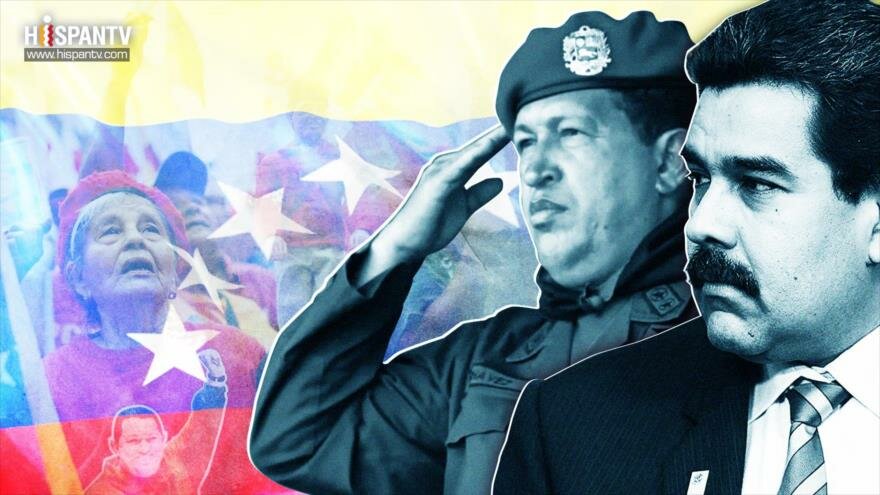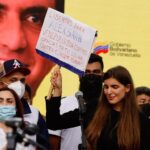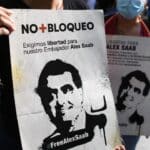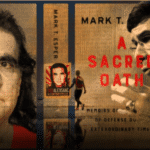
By Laila Tajeldine
In 1999, when everything in Venezuela seemed to collapse, was elected as the new president of Venezuela’s Hugo Chávez Frías.
At that time, Chávez received a country with poverty levels that exceeded 80%, with failed institutions and a people who had lived through a series of misfortunes, as blatant theft of their resources by foreign companies, regulations that favored foreign capital, in addition to the repression of the State with the neutralization of social leaders and movements; at that time the forced disappearances and torture were state policies.
There are millions of women and men who supported the project of the world’s best-known Latin American leftist leader, even after his early disappearance. Chavez is still a living and necessary project for the country, of Bolivarianism, anti-imperialism and socialism, but at the same time an example to follow in the world.
Perhaps it would be important to clarify that Venezuelans, especially their leadership, had never been subjected to as many tests as in recent years, tests that are even more difficult without the presence of Chavez, so it is worth asking Why the US has not yet managed to overthrow the left in Venezuela and how is it possible that his leadership has remained unbended?
The human being is formed through social relationships and is the means in which it develops and which will determine the social and class consciousness of the person. Therefore, each element in growth and training counts. Hugo Chávez was born in the heat of a humble family in the plains of the Caribbean nation, under the dictatorship of Marcos Pérez Jiménez and, as he grew up and lived, a conscience formed that led him to know his identity, as well as the importance of true independence and emancipation of peoples. He understood that for this it was necessary to have control of the country’s resources, all for the sake of the majority and social equality.
Likewise, his followers and the current Chavista leadership think that, despite so many attacks and countless attempts by the United States for deposing them, they remain unbended. Nicolás Maduro, Diosdado Cabello, Cilia Flores, Jorge Rodríguez, Delcy Rodríguez, Freddy Bernal, among others, are examples of how Venezuelan leaders have resisted such personal pressure, but where do these leaders come from? What determined their lives?
The current president of Venezuela, Nicolás Maduro, is the Chavista leader most attacked by the great economic powers worldwide. He was educated in a popular area of Caracas called El Valle, worked in a transport company (as a driver) and, from a young age, began his fight for the claim of labor and human rights of workers. His struggle was not confined to his work space and later he understood the national and world necessity of his dreams. On the left-wing militant path he met his current wife, Cilia Flores, a social fighter and defender of political prisoners, standing out as a Chávez freedom activist (after the Military Revolt of 1992). Both leaders have even been protagonists of great achievements that the revolution brought to the people.
Diosdado Cabello, clearly the second most important man of the Bolivarian Revolution and the most attacked, with a high record of sanctions and accusations by the US, although without presenting any evidence. Cabello, current president of the National Constituent Assembly and first vice president of the United Socialist Party of Venezuela, comes from a city called “El Furrial”, in Monagas state, Venezuelan countryside. Cabello tells that from a young age he saw the injustice and pain of the people, remembering the impact it caused for his life to see Mrs. Elisa del Furrial bury her five children and a grandson, all accused of guerrillas. The father of the Chavista leader was of great influence for his formation. He was a peasant leader, persecuted, shot, tortured and imprisoned for seven years.
Other leaders quite sanctioned by the US along with their satellites (countries) and that have not been intimidated are Delcy Rodríguez, current vice president of Venezuela, and Jorge Rodríguez, Minister of Communication, both are children of the social fighter Jorge Rodríguez, left-wing politician and founder of La Liga Socialista who, in July 1976, was arrested by the Government of Carlos Andrés Pérez and tortured to death. His children, aware of his father’s ideals, remained in the social struggle of the left and were formed in the heat of the battles that the people in Venezuela gave for the formation of a revolution and social justice.
These and many other leaders who accompany the Bolivarian Revolution in Venezuela today are examples of how, despite such external pressure, intimidation and psychological torture, the United States has not been able to make Chavismo surrender. The great majority of the Chavistas were formed in conditions of social struggles and claims for equality and sovereignty, based on values inherited from the country’s independence movement, even more, formed by Commander Hugo Chavez, every time he addressed his people reasoning and explaining to them the causes of the struggle, national history, the Venezuelan identity and the need for the creation of the Great Homeland.
The US in Venezuela has only managed to drag a group with it, some for lack of principles, others known for using the Revolution to enrich themselves and now use the imperial nation and / or satellite states of shelter in exchange for serving their interests.
For the capitalist, personal interests go above any other, including family or country sentiment. For the socialist, collective and human interests are essentially their own personal interests, that is the main reason why the Chavista leadership is not intimidated or betrayed, perhaps this is what it costs the US to understand
Translated by JRE

Laila Tajeldine
Laila Tajeldine is a Venezuelan Lawyer | University Professor | Political, international and human rights analyst | TV and radio presenter
- Laila Tajeldine#molongui-disabled-link
- Laila Tajeldine#molongui-disabled-link
- Laila Tajeldine#molongui-disabled-link
- Laila Tajeldine#molongui-disabled-linkSeptember 19, 2021
Share this:
- Click to share on Twitter (Opens in new window)
- Click to share on Facebook (Opens in new window)
- Click to share on LinkedIn (Opens in new window)
- Click to share on WhatsApp (Opens in new window)
- Click to share on Reddit (Opens in new window)
- Click to share on Telegram (Opens in new window)
- Click to email a link to a friend (Opens in new window)




